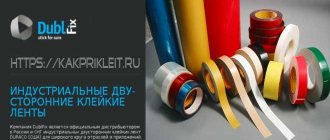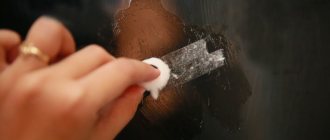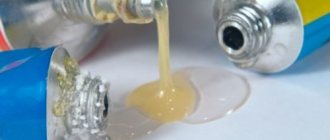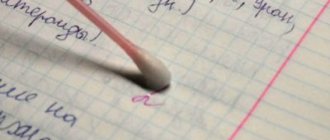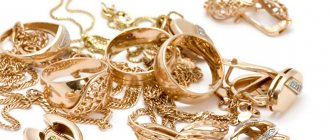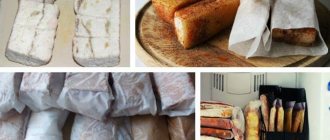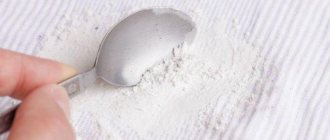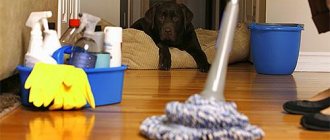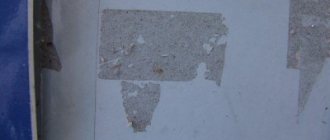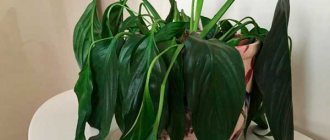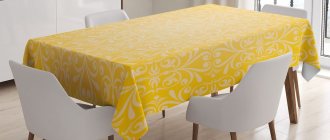Removing tape from glass is not an easy task. Especially if the adhesive tape has been in place for a long time and cannot be removed by lifting it with your hand. There are several ways to remove sticky marks. There are effective folk and special means for washing adhesive from adhesive tape from glass.
Do you use tape at home?
Not really
How to remove traces of tape from different surfaces?
We invite you to consider the 10 most effective and popular ways to remove adhesive tape from different surfaces.
Here is a list of products that are good at removing tape adhesive residue:
- vegetable oil
- alcohol, alcohol-containing solutions
- glass cleaner
- eraser
- solvents
- turpentine
- hot soapy solution
- baking soda, cleaning powder
- special aerosols
- scotch
We would like to warn you that not all products are equally suitable for processing glass, plastic, wood and metal. Some products (for example, solvents) can damage wooden or painted metal surfaces. Therefore, we must act carefully.
Cleaning plastic
Low porosity, high density and good heat resistance are a set of characteristics inherent in plastic surfaces. At the same time, plastic is characterized by low resistance to chemical and mechanical influences. Chemical reagents and aggressive solvents cannot be used to remove tape. Products with a pungent odor are also contraindicated for plastic - they are easily absorbed into the layers, but it takes a long time and is difficult to erode.
Heat – to remove tape and marks
Heat will help remove the tape. The method is applicable for surfaces made of dense and durable plastic. The exposure temperature should not exceed a threshold of 70–80 °C.
Thermal influence is applied in relation to:
- To the tape. The tape must be heated and simultaneously removed from the plastic surface. The adhesive backing will soften and come off along with the tape.
- To the glue marks.
If the tape is removed, but traces of glue remain, proceed based on two diagrams:
- Continue heating until softened. A rubber spatula will help clean the softened, warm composition.
- After softening the adhesive base, apply a soap solution and clean the surface.
- Repeat the procedure until the desired result is achieved.
The method is effective both in relation to fresh traces and old ones.
Alcohol removes glue and yellowness
It will help not only to remove the glue from the tape, but also to transform the appearance of the plastic, neutralizing the yellowness.
Application:
- Soak a gauze pad in ethyl medical alcohol.
- Treat the problem area until traces of the tape are completely removed.
When applying alcohol, it is better to use a soft, lint-free cloth to speed up the process.
Mustard and vinegar
You will need:
- mustard powder – 3 tbsp. l;
- warm water – 1 tbsp. l;
- table vinegar (9%) – 1 tsp.
Mode of application:
- Mix the stated ingredients until a paste is obtained.
- Apply the paste onto a sticky layer of tape.
- Leave for 5-7 minutes.
- Remove residues with a sponge or cloth without applying pressure.
- Rinse off the cleanser with warm water.
The mixture acts as a solvent and is only applicable to dark or opaque plastic, since exposure to light or transparent surfaces can result in yellowing and streaks.
How to remove tape marks from glass surfaces?
The base of the tape can be different. If stains are not wiped off in a timely manner, dust lumps and dirt begin to accumulate on them. The adhesive base cannot be washed off with water or wiped off with wet wipes; some effort is required.
Painter, stationery
Painting tape made from a paper backing that absorbs moisture and oil is easier to wash off with hot water. As a result, the canvas gets wet and comes off freely from the surface.
- Quickly remove tape from a plastic window
- How and with what to remove traces of tape on furniture
- How to remove double-sided tape
If the method is ineffective, resort to:
- Refined gasoline and ethyl acetate (ethyl acetate) are mixed in equal proportions. The mixture wipes away the dirt.
- Lubricate the area with vegetable oil, wait for absorption, and wipe with a soft cloth soaked in drying oil.
- Apply essential oil using personal protective equipment (latex gloves).
If you need to wipe away traces of tape left on the glass, you can use a paper knife.
Stationery and mounting tapes have a base made of aluminum foil. The film is waterproof and does not allow oily emulsion to pass through. Efforts to remove the adhesive tape using various solutions will be unsuccessful.
You can use a blade or scraper that is safe for the coating. We pry up the corner of the tape with a sharp object and pull it. There is a possibility that the strip will break into pieces. Apply more duct tape. If you pull on the new strip, the old one will come off.
Another way is to heat the glass unit with a hairdryer and remove it with a scraper.
Acrylic glue
Acrylic glue is used to lubricate office adhesive tape and double-sided construction tape. The remainder of the substance leaves stains on the plastic window, which spoil the appearance.
To clean the remaining excess glue, you need to use the following available tools:
- solvent, solvent;
- ethyl alcohol, vodka, lotion, toilet water;
- laundry soap;
- soda;
- ammonia;
- vinegar;
- dishwashing liquid;
- special preparations for removing glue.
When choosing a substance, it is necessary to take into account the characteristics of the coating.
Good advice
- Before using solvents or abrasives, try removing traces of tape yourself. To do this, press the wide adhesive tape tightly around the perimeter of the stain, smooth it out and slowly pull it up and to the side.
- To remove adhesive from small textiles, soak the fabrics in a solution of hydrogen peroxide, laundry detergent or gel, and water for 10 to 20 minutes. Place the container in the microwave, set the power to low and turn on for 5-7 minutes. After finishing the program, wash in the washing machine as usual.
- As soft abrasives, you can use soda or fine “Extra” salt.
- Before using any product, test its effect on a small, inconspicuous area of the base.
- To protect adjacent surfaces from sticking tape, apply a thin layer of starch or baby powder with talcum powder.
- For the best effect, combine different methods, starting with less aggressive ones.
- Remove traces of tape as quickly as possible. The longer they remain on the base, the more difficult it will be to get rid of them.
We recommend watching the video instructions:
How to remove adhesive from tape from metal?
Remnants of adhesive tape can be removed from metal surfaces with sunflower oil, gasoline, skepidar, and an eraser. You can also heat the metal with a hairdryer and wipe it with soapy water.
- How to clean tiles from tile adhesive: methods and means
- Ways to remove glue from stickers from different surfaces
- How to remove stains on frosted glass from grease and dirt
Simple Methods
The easiest way is to use tools that are likely to be on hand in every kitchen or workshop.
Sunflower oil
In addition to sunflower, you can take any vegetable (for example, olive) or essential oil. When choosing an essential oil, you should give preference to a bottle with a pleasant aroma; then, in addition to removing traces of glue, the product will also refresh the air in the room.
A little oil is poured directly onto the stain, or a cloth soaked in oil is applied to the contaminated area. The oil should be left to act for a while, then wiped off with a cloth, and the residue should be washed off with water and soap. Oil will leave greasy stains on untreated wood surfaces and is not recommended for use.
Gasoline for lighters
Gasoline used to refill lighters is preferable to regular gasoline because it has undergone additional purification. Use gasoline indoors with extreme caution as it is toxic and flammable.
Eraser
A regular school eraser can be used to remove remaining tape from almost any surface, including plastic and furniture. The method is labor-intensive, since you have to rub hard and for a long time. Afterwards you need to wipe with a damp cloth.
Hairdryer
When heated, the adhesive residue softens and becomes easier to remove mechanically. You can not use a hair dryer on all surfaces, but only on those that are not afraid of high temperatures. Often, the use of a hair dryer is combined with other means: first, the glue is softened by heating the surface, then the stain is removed, for example, with gasoline.
Cloth soaked in hot water
Sometimes, to remove the adhesive from the tape, it is enough to wash the contaminated area with a damp cloth. Hot water will soften the glue marks and the cloth will remove the residue.
New tape
The easiest way is to remove the remnants of the old tape using new one. To do this, stick adhesive tape over the adhesive traces, and then sharply tear it off. The method will help where the use of solvents or abrasives can damage the surface, for example, on furniture.
Soda solution
Soda is often used to clean glass, plastic, and tiles. Prepare a thick paste from soda with a small amount of water, place it on the stain, and then wipe it off with light movements.
Be careful not to scratch the base material.
Methods for removing double-sided tape
Removal methods may vary for different surfaces.
1. The easiest way to remove double-sided tape is from glass. You can use a windshield wiper for this task. Clean off any remaining tape with a hard sponge or a utility knife. You can finally wash off the residue with soapy water or dishwashing detergent.
2. There are professional sprays for removing tape and sticky surface labels. They can be sold in construction stores. You need to look for such products in departments that sell polyurethane foam, sealants, etc.
3. Double-sided tape most often contains acrylic glue, which is removed when the temperature rises, so the surface with the tape can be poured with boiling water, held for a while and cleaned.
4. The tape can also be heated with a hair dryer, and the residue can be removed with any type of solvent or kerosene. In order not to damage the surface being cleaned, you need to find out how the solvent affects it, since, for example, polishing can turn white and swell, both from the solvent and from heating with a hairdryer, because it will have to be heated to almost 100 degrees.
5. How to remove double-sided tape - the sticky layer can be removed with lighter gasoline. After wetting the surface with a cloth, quickly remove the tape and wash off the gasoline. Please note that regular gasoline is unlikely to be suitable for any surface.
6. In this situation, vegetable oil can help, although this method is quite long. You will need to pour the tape and the surface for a whole day, but it is quite safe for the surface covered with paint and varnish.
7. If you have a drill, you can purchase a rubber attachment specifically designed for this purpose. This device perfectly removes many types of glue without damaging the surface itself.
How to remove double-sided tape from car parts and body? To remove double-sided tape applied to the car, you can contact a car service center to provide cleaning services.
We advised how to remove double-sided tape, but maybe you know another way?
Review of the effectiveness of tape stain removers
An overview of effective methods for cleaning tape from glass. These procedures can be used for various surfaces and at home.
Home Remedies
So, how to remove traces of tape from glass? Glue cannot be removed with water or a damp cloth, so most often modern housewives use a choice of:
- Vegetable oils (olive, essential, flaxseed) . Soak a cloth in the oil and fix it on the glass for 2 hours, then rinse with dishwashing liquid and wipe dry. Essential oils not only cope well with the problem, but also leave a pleasant aroma.
- Eraser or eraser . The eraser is moved over the glass in the same way as erasing a drawing on paper. Sometimes a small amount of “pellets” of glue remains on the surface, but they are easily washed off with water. Glass can withstand minor mechanical stress and is not damaged.
- Stationery knife . The knife is placed at a slight angle to the spot being treated and the adhesive is removed from the tape. This method is used as a last resort when there are no other options: careless handling may leave scratches on the glass. Instead of a knife, blades or a scraper are suitable.
- Scotch . It is glued to the contaminated area and quickly pulled from the bottom up. The glass is cleaned by wiping it with a damp cloth. You need to act quickly, without leaving the tape on for a long time, otherwise the problem will become doubly difficult.
- Hot solution based on laundry soap . Crumble shavings of laundry soap into water, dip a cloth in the soap solution and fix it on the adhesive stain for 5 minutes, then rinse with water, removing the dissolved glue with a napkin. An alkaline solution solves the problem well and quickly.
- Hairdryer _ Heat as much as possible and direct the jet onto the dirty glass. 10 minutes is enough for the adhesive from the tape to soften. After this, it is simply removed with a dry cloth. The method is dangerous because the glass may burst from the hot air.
- Steam cleaner. The device acts on the adhesive base from a distance of 30 cm for 5 minutes. After this, the glue is removed with dry paper or a napkin, and the glass is washed again to remove stains. If you get too close, the glass may crack. It is important to be careful when working with painted, frosted or tinted glass.
- Soda. Soda is dissolved with water to a paste-like state and applied to the adhesive stain, rubbing it in a circular motion without strong pressure, since soda consists of particles that can leave micro-scratches on the glass.
- The effect of any product on the adhesive stain takes a certain time. The surface is wiped repeatedly so that the glue has time to dissolve, otherwise it will not be possible to completely clean the glass.
Special means
Industrial plants offer a variety of special products that help clean the windshield of a car. Available in the form of solutions, pencils, sprays. Shape affects application, but not effectiveness.
| Remover sticker (spray can, pencil, solution). Helps you get rid of paper tape and stickers. | Apply the aerosol in an even layer to the contaminated area from a distance of 20-25 cm. Wait a few seconds and wipe with a microfiber cloth. |
| Skittle Tablefit (available in the form of a liquid with a spray). Copes with any traces. Do not apply to paintwork or protective sheets. In case of accidental contact, wipe with a napkin. | Sprinkle the substance onto a napkin, wipe off the stains and wipe dry. |
| Taygeta S-405 is a stain remover that removes traces of glue, bitumen, lipstick, and shoe polish. Do not apply to areas in contact with food. | Apply the substance to the stains and leave for up to 3 minutes. Remove excess with a cloth. For prolonged use, use a respirator. |
| Formula X-5 is a universal cleaning solution that removes sticker marks. Do not dilute, does not freeze. | Spray onto a napkin using a spray bottle, blot the dirty area, rub a little, and wipe dry. |
| Super SMF-240 is a concentrated solution with an alkaline effect. Safe, consumes slowly. | The product is diluted in a concentration of 0.5% -1%. Apply to a surface, wait 10 seconds and remove with a rubber scraper or soft cloth. Excessive concentration will lead to increased foaming. |
| Merida Impet is a highly alkaline product based on solvents of fat and dirt. Not used for cleaning carpets, wood or laminated plastic surfaces. | The solution is diluted in a ratio of 1:20, applied to the surface of the car and rubbed for 2-3 minutes with a hard sponge. Wash off with water. For protection, use goggles and rubber gloves. |
When working with industrial products, be careful and follow the recommendations to help avoid consequences.
Use of chemicals
Some housewives prefer exclusively chemicals and cleaning compounds, which they consider the most reliable.
In everyday life they use:
Vinegar (table, wine, apple) .
Apply vinegar to a cloth and rub the stain on the glass in a circular motion. After cleaning, the surface is wiped dry again. Vinegar adds shine and eliminates possible stains.- Kitchen cleaning products (Mr. Muscle, Myth, Drop, Pemolux) . One of them is applied to a sponge and the surface is thoroughly wiped, and then washed with water. It is advisable to use products in the form of gels so that the powder does not leave small scratches on the surface.
- Products intended for cleaning glass . With their help, they remove adhesive stains and any strong contaminants: resinous substances, labels, glue.
- Ammonia: medical or technical . Soak a cloth in the ammonia solution and thoroughly wash the contaminated area in a circular motion. Wipe the surface dry. Ammonia cleans and adds shine to glass. Nail polish remover works in a similar way (works well with fresh stains).
- Solvents (alcohol, acetone, gasoline, kerosene) . The sponge is immersed in kerosene, wrung out and applied to the contaminated surface. Rinse with water and wipe until dry. The method is suitable for glass and mirrors.
- Alcohol and solutions containing it (vodka, tinctures, cologne) . Apply alcohol to a cotton pad and wipe the surface for a long time, and then wipe with paper until dry. The method is simple, but requires time and effort.
To clean glass in one go, use a combination of two products. This will make the effort easier and get rid of residual streaks and stains.
For example, first the surface is heated so that the glue melts, and then washed with one of the above products.
Rules for removing glue and what not to do
The use of aggressive substances (white spirit, alcohol, acetone, vinegar essence, window cleaner) is allowed on glass surfaces. Residues are easily removed without leaving scratches.
You cannot remove stains from double-sided tape with abrasive cleaning powders; the tape will be damaged.
Some tips for properly removing excess adhesive:
- A hair dryer is used to heat the tape. Prolonged heating contributes to the formation of cracks in the glass.
- When using a steam cleaner, maintain a distance of 30 cm.
- During treatment with acetone, adhesive traces may be smeared.
- Applying baking soda leaves scratches on surfaces.
- When working with any means, gloves and goggles should be used.
- Carry out cleaning in ventilated areas.
It is not recommended to rub with metal brushes, using alkaline and acidic substances.
The principles for removing adhesive depend on the type of adhesive tape. Homemade methods and special products help you easily get rid of tape and its prints.
What products should not be used to clean glass?
Although glass is a material resistant to various chemicals, it still has limitations. It is not advisable to heat it, which is often recommended to do to remove old tape or to clean traces of it. If the heating is uneven and the temperature is too high, the glass or mirror may simply burst. It is unrealistic to ensure control over the heating temperature over the entire area at home.
The use of abrasives is also prohibited - soda, abrasive sponges or sandpapers will leave scratches that give the surface an untidy appearance. For the same reason, mechanical impact with sharp objects, metal brushes or scrapers is undesirable. The use of acetone or solvent 646 gives a bad result. They slightly dissolve the adhesive base; when washed, it is spread over a larger area, but is not completely removed.
